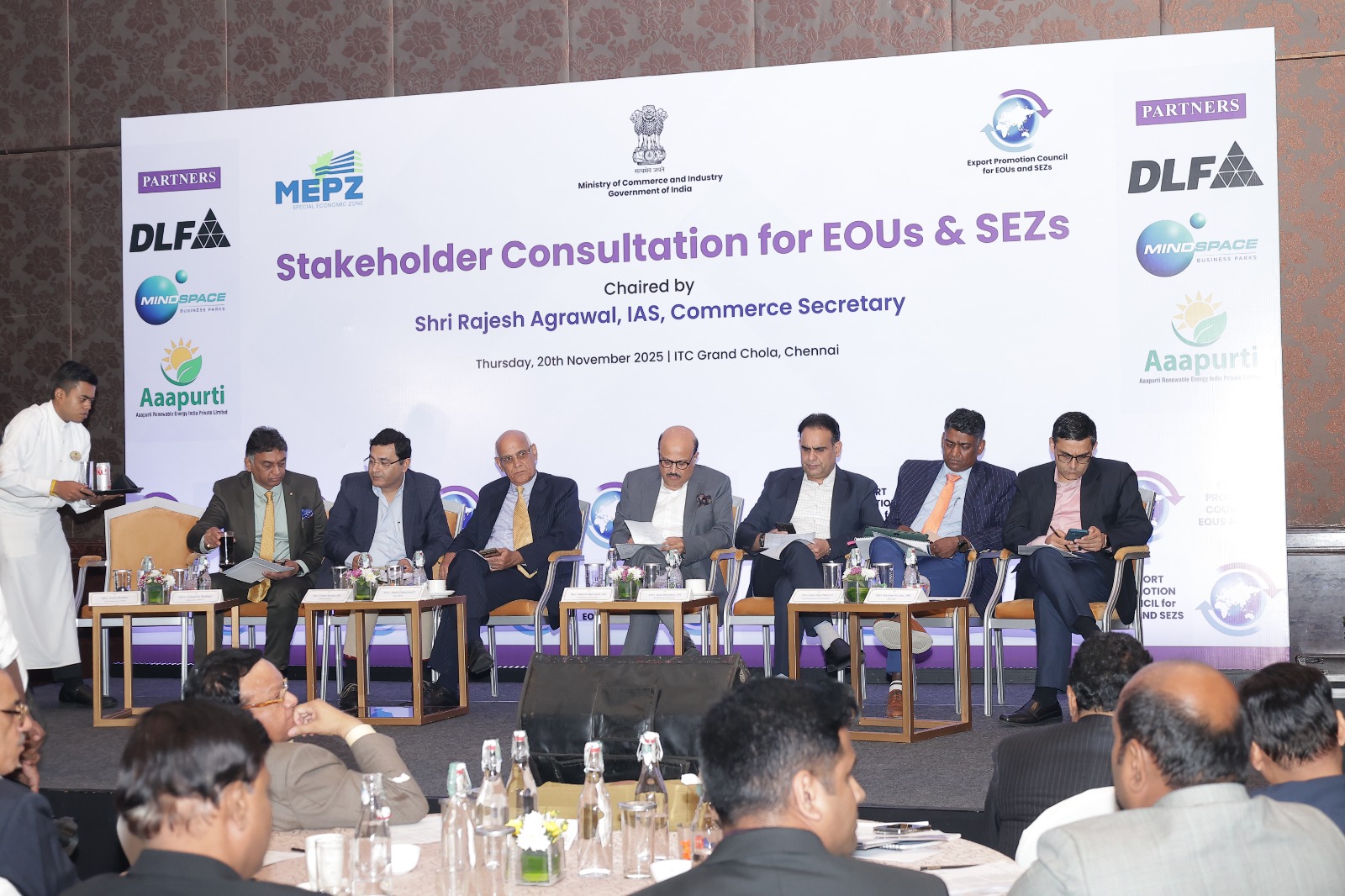
Commerce Secretary Chairs 134th Meeting of Board of Approval at MEPZ SEZ, Chennai
CHENNAI: The 134th meeting of the Board of Approval (BoA) for Special Economic Zones (SEZs) was convened in Chennai on Thursday, chaired by Commerce Secretary Shri Rajesh Agrawal, IAS, at the MEPZ Special Economic Zone. The session brought together Zonal Development Commissioners and senior officials of the Department of Commerce, including Shri Ajay Bhadoo, Additional Secretary, and Shri Vimal Anand, Joint Secretary.
The high-level consultation focused on strengthening the SEZ framework through data-backed decision-making and improved performance metrics. In his address, the Commerce Secretary underscored the importance of leveraging hard data to enhance the value proposition of SEZs, calling for comparative benchmarking of SEZ performance with State industrial clusters across parameters such as employment generation, R&D expenditure, and Net Foreign Exchange Earnings (NFEE).
Shri Agrawal further emphasised the need to identify bottlenecks in procedures, streamline operations, and expand the Key Performance Indicators (KPIs) to incorporate strategic and people-centric dimensions, ensuring a more holistic assessment of SEZ effectiveness.
Presentations from the Department of Commerce and MEPZ SEZ provided a comprehensive review of current SEZ/EOU performance, covering administrative frameworks, investments, export growth, employment trends, and land utilisation. They also highlighted Tamil Nadu’s strong, sector-driven industrial ecosystem, which continues to support high-value manufacturing and export competitiveness.
As part of the visit, an industry interface session was organised with regional leadership of the Export Promotion Council for EOUs & SEZs (EPCES), giving industry stakeholders an opportunity to share trade-specific insights and policy suggestions.
The meeting reaffirmed the government’s commitment to strengthening India’s SEZ architecture through targeted reforms, improved policy responsiveness, and closer engagement with industry.

